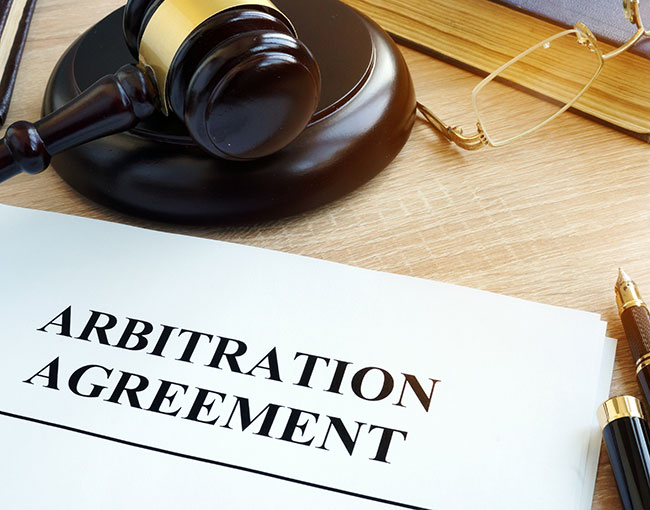
In light of a critical U.S. Supreme Court decision affecting an employer’s ability to enforce employment arbitration agreements, careful drafting is critical.
Arbitration agreements may be useful when an employee raises employment-related disputes during employment or after. Employers may want to consider an enforceable agreement that has such claims heard by a single, mutually-selected arbitrator to avoid class action litigation, jury trials, the higher cost of court litigation and undue delays that often result in the loss of witnesses and eroding recollection of events. These possible advantages may outweigh concerns about increasing arbitrator fees over the last decade.
The U.S. Supreme Court in Epic Systems Corp. v. Lewis ruled that arbitration agreements barring employees from filing or participating in class actions are enforceable, and that agreements subjecting employees to individualized settlement procedures subject to the Federal Arbitration Act (FAA) takes precedence over collective rights under the National Labor Relations Act. As long as the agreement is fair to both parties and not unconscionable, it is enforceable.
Although the California Supreme Court in 2014 endorsed this view based in AT&T Mobility, LLC v. Concepcion, California recently enacted a law effective January 1, 2020 prohibiting an employer, “as a condition of employment,” from requiring an applicant or employee to waive the right to file a complaint before any state or governmental agency or a civil action. A California employer may not discriminate or retaliate against an applicant or employee who refuses to sign an agreement waiving any forum or procedure in any governmental agencies or civil action. While the California law would otherwise prohibit class action waivers, it is not intended “to invalidate a written agreement that is enforceable under the Federal Arbitration Act (FAA).”
Although the U.S. Chamber of Commerce has now sued the State of California seeking to nullify the law, that litigation may take years to resolve. In the interim, employers and their counsel need to carefully consider options in drafting arbitration agreements that address the new law that may help in compelling a court complainant to arbitrate the claims. Anyone creating, revising or reviewing agreements to arbitrate employment disputes should consider the following: